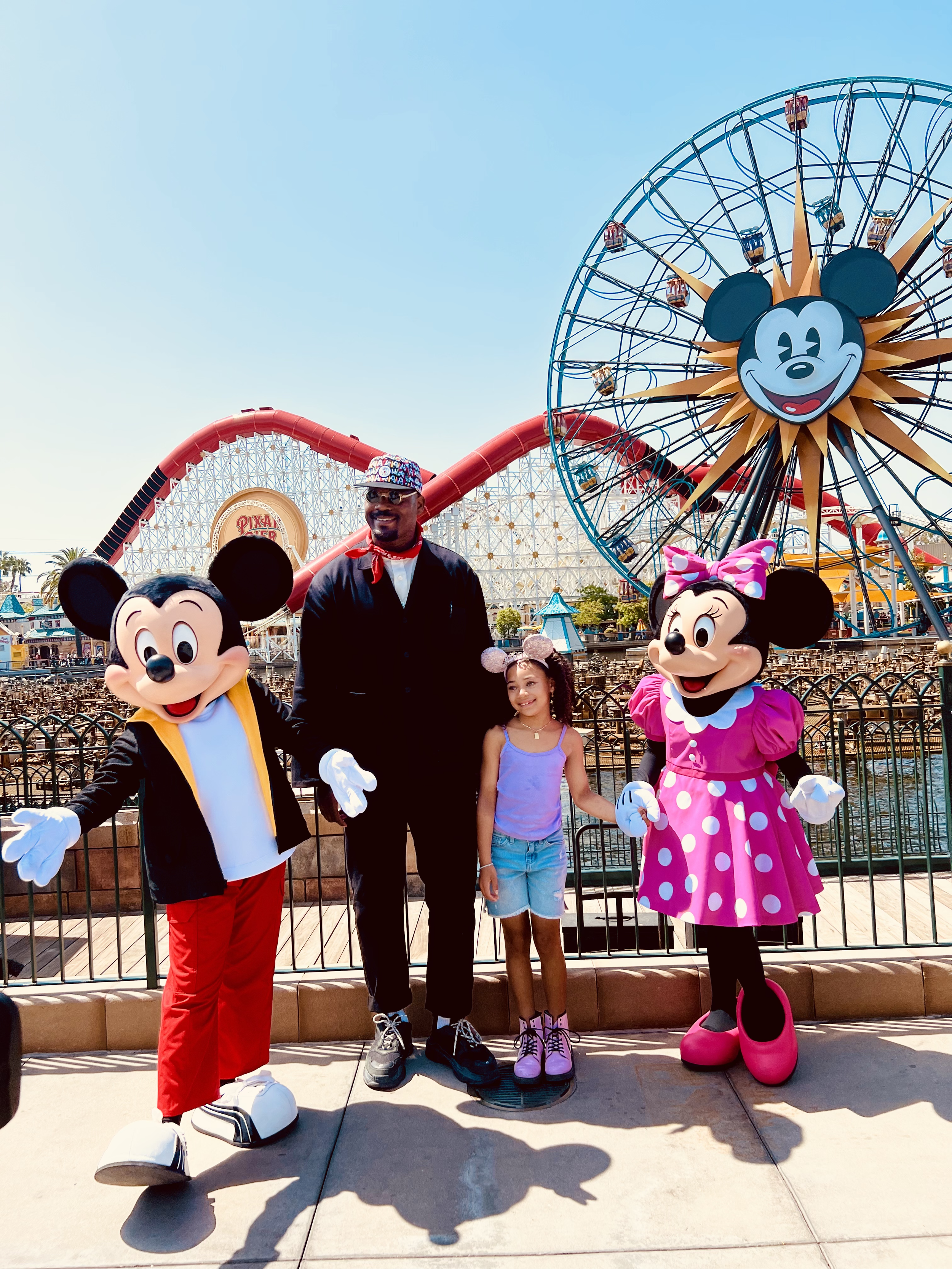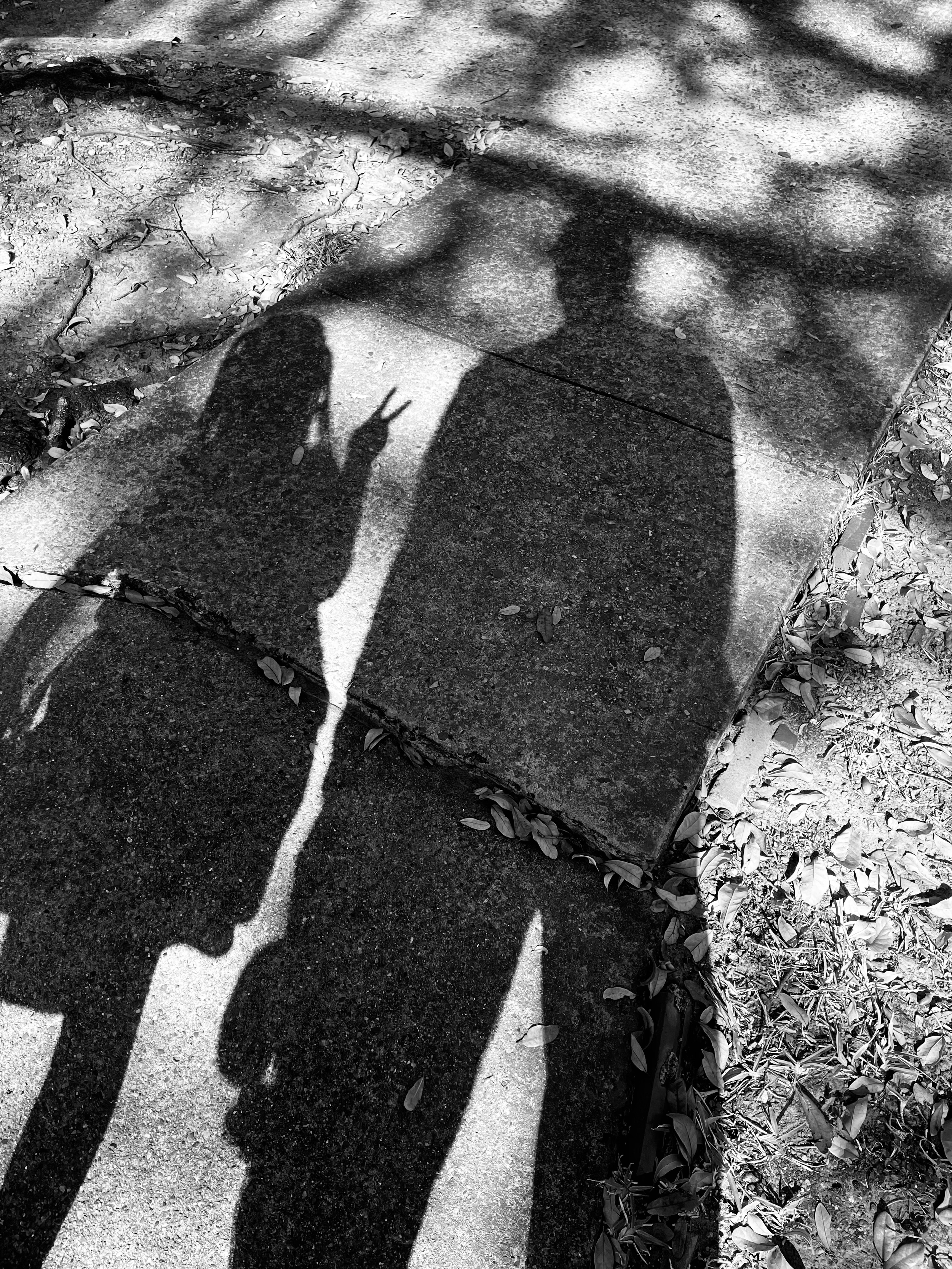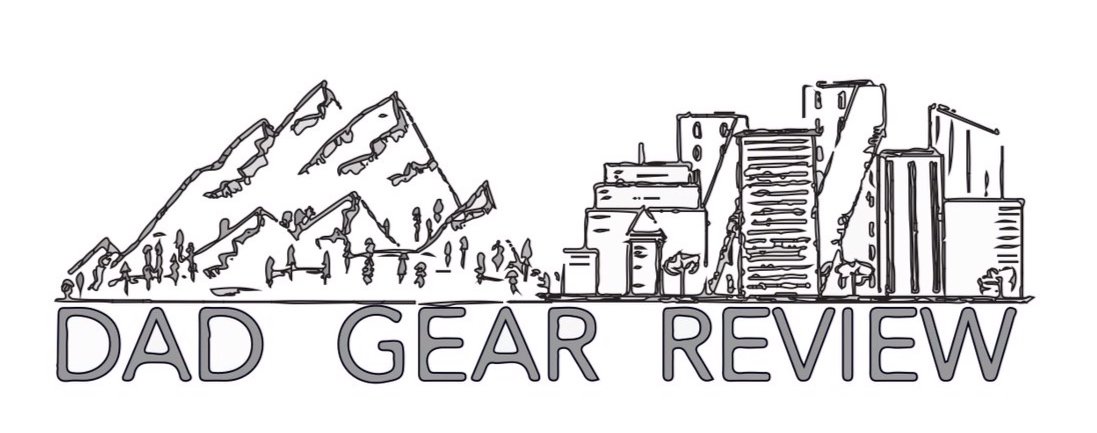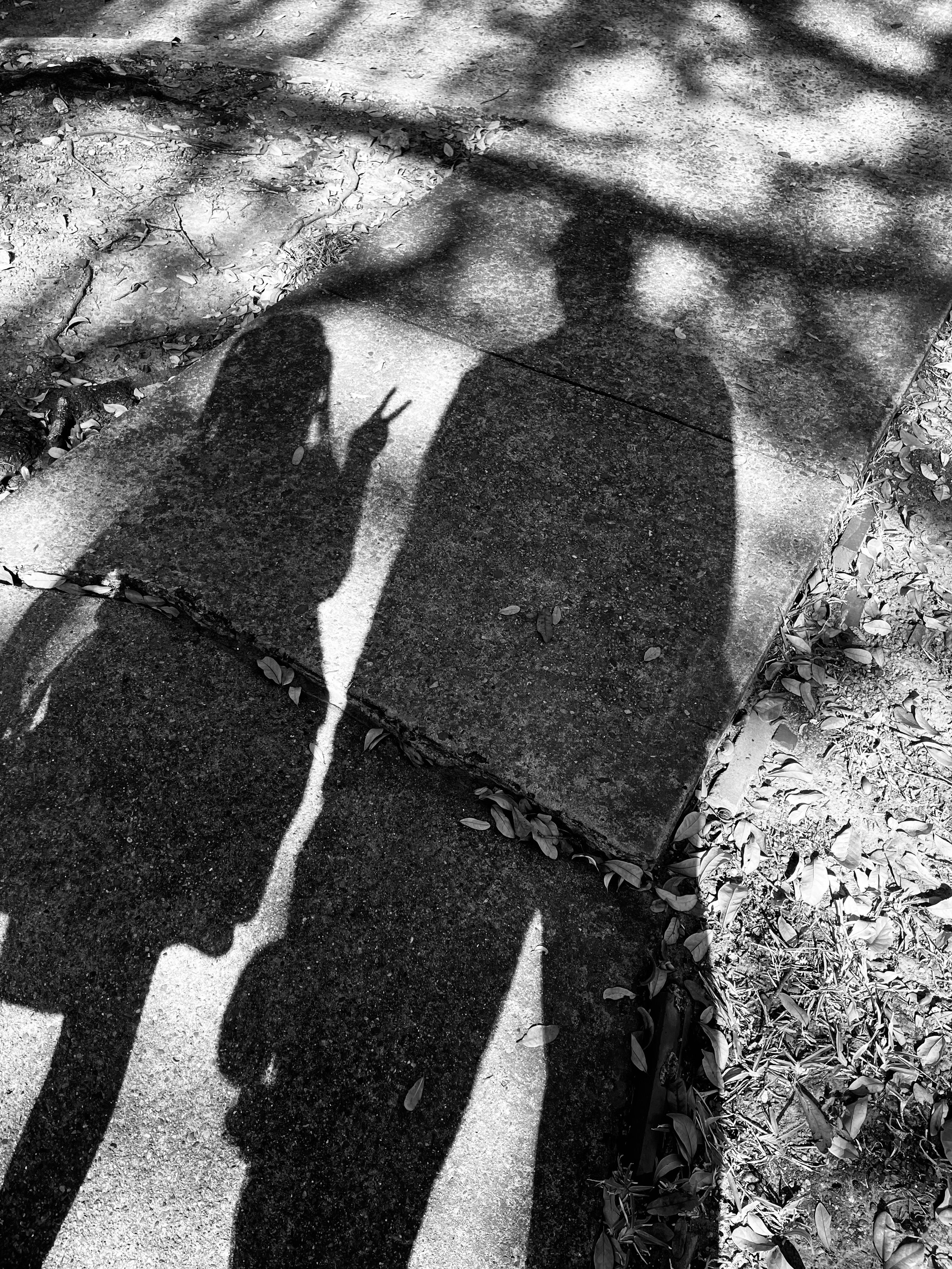
Martellus Bennett
Former NFL Pro Football Player, Author, Illustrator, Rapper, Filmmaker, Outdoorsman, and Devoted Dad Talks Kids’ Literature, Bikes, and What He Learned from Trees
By Steven John
After a bit of casual conversation as we got to know one another, I started off the Dad Gear Review conversation with Martellus Bennett, who goes primarily by Marty, with a question we use at the top of many interviews: What are a few words you would use to describe yourself?
Now, to be honest, I expected the standard reply wherein nouns related to career tend to be the first reply – think “football player” or “author” or “producer.” But as I was soon to learn, Marty Bennett rarely gives the “standard” answer to any question, because he does not live the standard life. Marty is a man who has worn many hats in his 35 years so far, yet none of them define him; rather they are all parts of a unique whole that has led to a whole lot of unique pursuits in life, from success in the NFL to writing and illustrating children’s books to helping design and decorate a BMX bike, to name but a few.
Knowing all this as I now do, Marty’s answer to the “describe yourself” question is anything but surprising. He replied: “Curious, resourceful, and intentional.”
“So if you introduce yourself to someone these days, how do you do it?” I followed up. “First and foremost, as a father, as an author, as an illustrator, as an ex player?”
“I just say: ‘Hey, I'm Marty.’ I don't really get into anything about the rest, even professionally, I don't really say much. If someone ask me what I do, I usually just say: ‘I'm a maker.’ I don't know. I guess when I introduce myself, it depends on the setting. If I'm at the school or whatever, I'm just Jett's dad. When I go to see the kids, they be like: ‘Jett's dad, hey, Jett's dad. Jett's dad’s here.’ Which I like, actually. I like that. It's kind of cool. But I guess I just introduce myself as Marty. I don't really think of myself as anything necessarily. But at the same time, I think of myself as everything.”
“Now, if you think of yourself 10 years ago,” I asked next, “replying that you're just Marty, do you think you'd be surprised? I know you don't feel like you were ever really defined by football – I think you played the game and played it well and all, but weren't really defined by it. Do you think if 10 years ago you heard yourself say that, you’d be surprised?
“No,” he answered at once. “I think it be the same. I think back then it was the same thing. I was always just being whichever name I was going by at the time, but I was just that, you know what I'm saying? So it's just, I think I'm pretty much in line with who I've always been. I don't feel like I've drifted. I think the biggest thing is just kind of understanding myself more now.”
“[I’m] always fine tuning what I'm actually trying to accomplish,” Marty Bennett went on, “where I'm actually trying to go. Maybe I'm not so loosey goosey; my tongue is not as loose now, you know what I'm saying? I have more control over myself. Like I said, I'm more intentional with things. I don't think I was as intentional in the past, even though I always knew what my intentions were.”
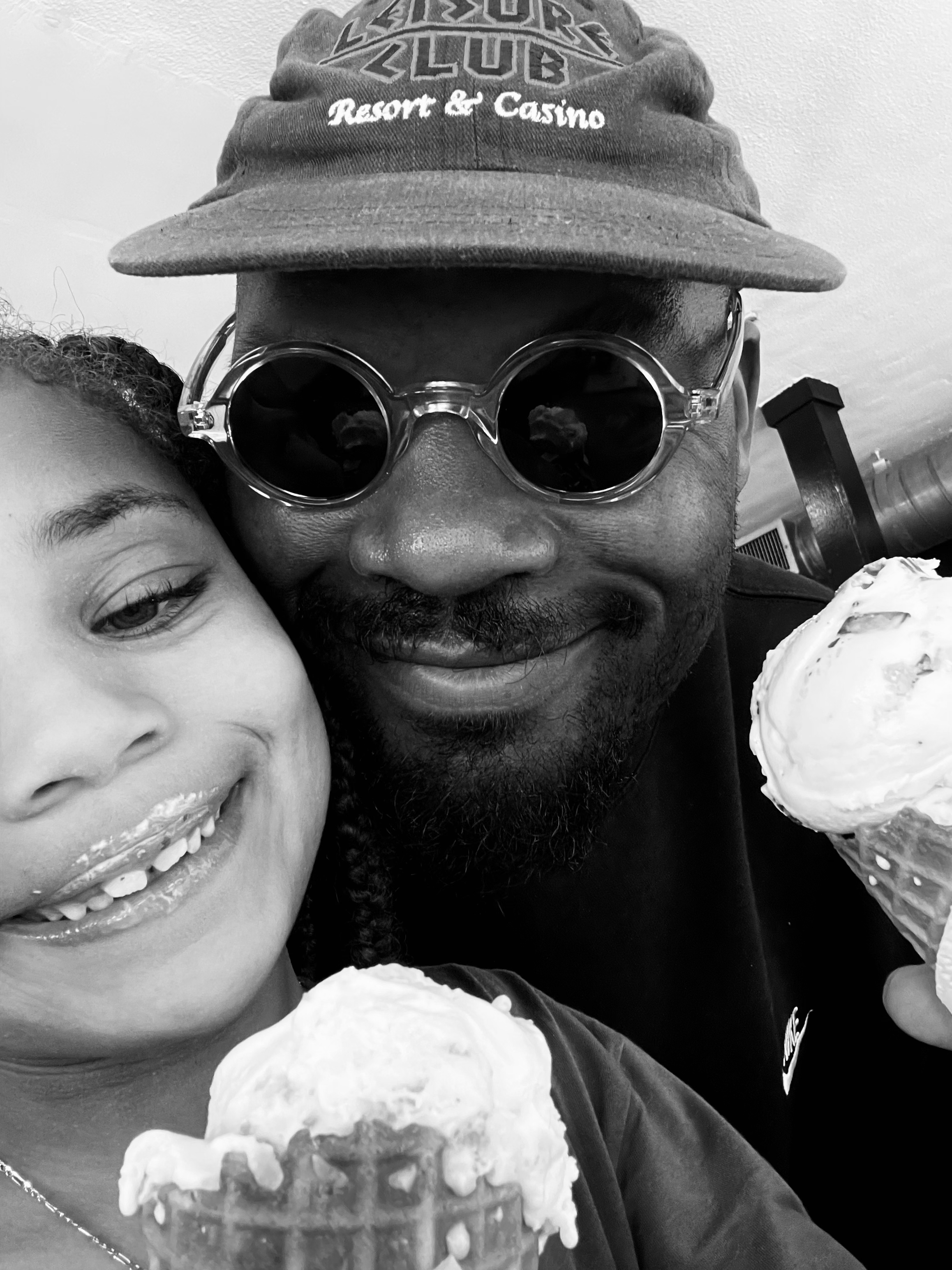
Photos c/o The Bennett Family
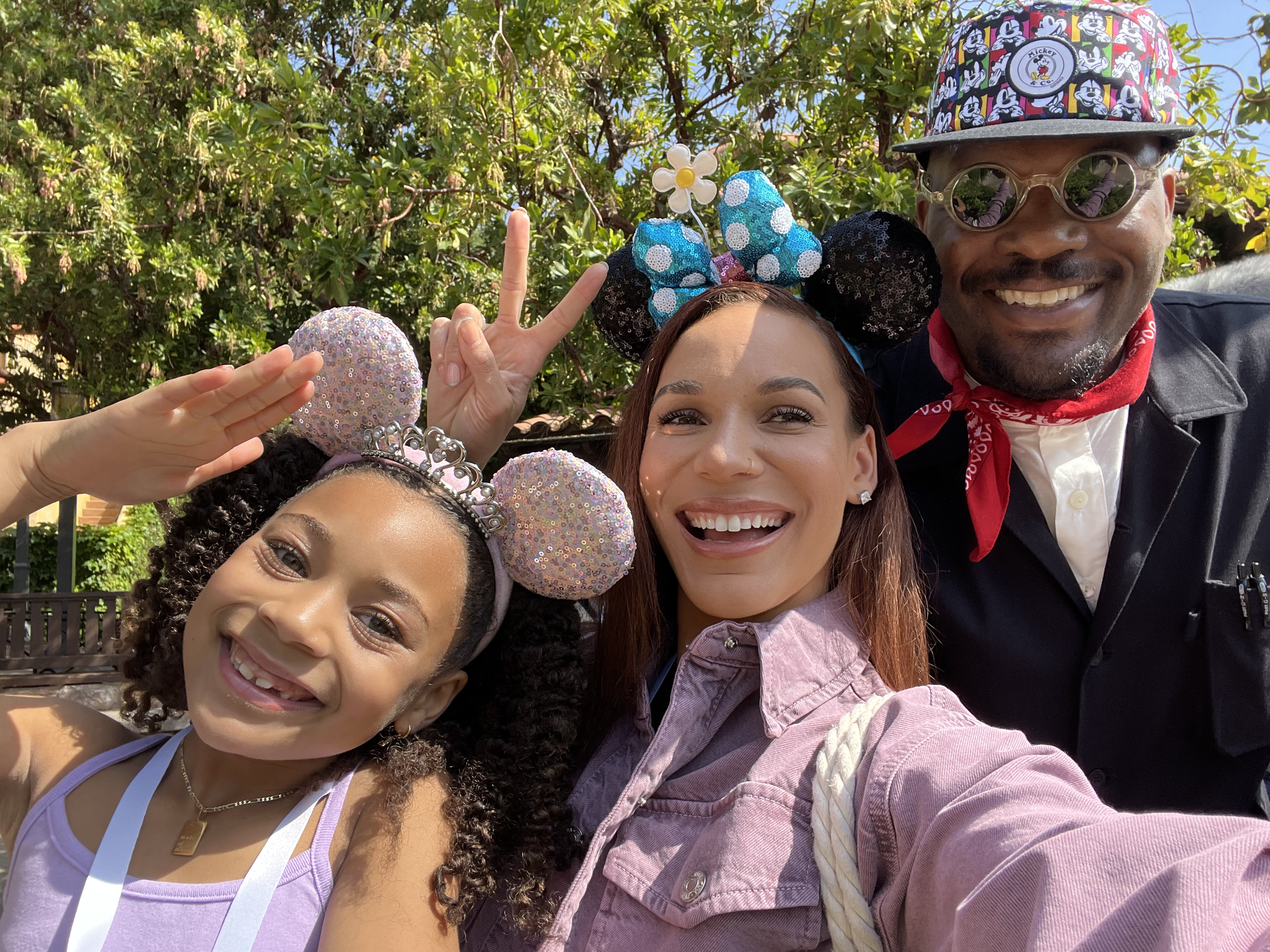
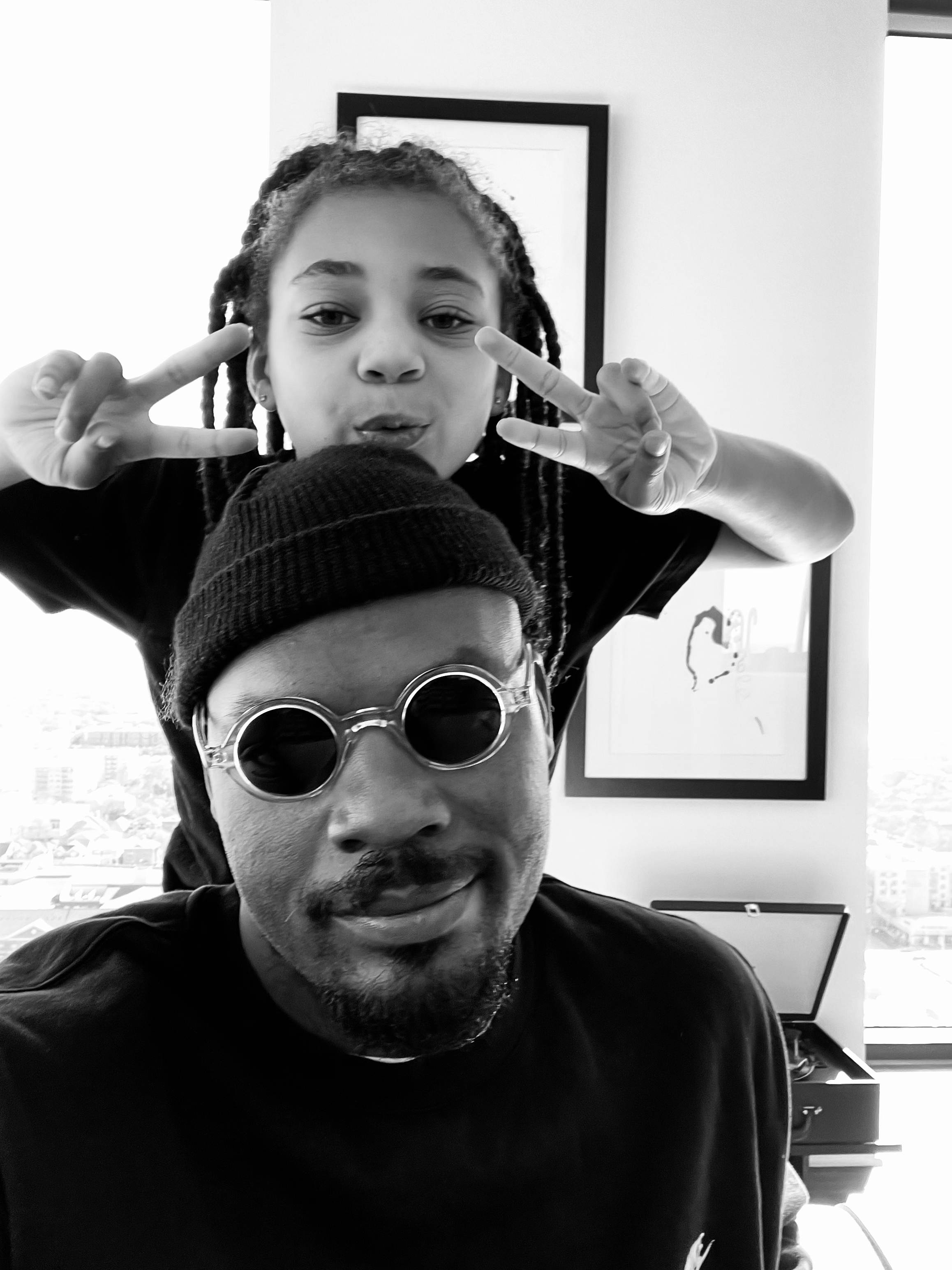
Those intentions, for many years, have been to write, illustrate, and publish books. Marty was famous for even bringing his writing and drawing materials into the locker rooms during NFL practice or game day meetings, jotting prose or working on illustrations as plays were discussed, stats cited, and plans made. He seems to have been able to juggle things just fine, given his Pro Bowl status with the Chicago Bears and his playing on the Super Bowl LI-winning New England Patriots.
As Martellus Bennett is today becoming as recognized for his books, such as “Hey A.J., It’s Bedtime!” and “Hey A.J., It’s Saturday!” we next talked about how and when he first came to writing. It turns out it has been essentially a lifelong pursuit. As was entrepreneurship.
“What role did writing and the arts play for you as a kid?” I asked.
“Well, I started writing when I was young. I was always really good at English, but when I used to get in trouble, my mama used to make me write these stories, or write what I did wrong. And it would be like: ‘Oh, today I stole this and I'm sorry because of this and that.’ But by the time we got to my 15th time doing it, I just started making s**t up. Like: ‘There was three FBI agents chasing me and I was in a candy store and I slid behind the desk…’"
“I started writing stuff like that for my mom to read. So that's when I really easily started just writing stuff – because the s**t had to be a certain amount of words for her. And I'm just like: ‘I don't know how to make what happened that many words, so let me just make it up.” Because it's literally, my thing used to be like: ‘I stole from the candy store, I'm sorry for doing it,’ et cetera. She's like: ‘That's not enough." And I'm like: ‘That's not enough?’ So I just started just going off and telling all the details of the story. So that's when I was writing then. And then as far as art goes, I've never not made things.”
One thing he was always into making was a profit. Here comes the entrepreneurial part of Marty Bennett’s childhood story.
“I had lots of businesses as a kid. Lawn mowing services. I even sold everybody's bike in the house because they wasn't riding it. So I just sold everybody's bike but mine. I know my mom, when I told my mom I had this new bike coming out, she's like: ‘Now you can pay us back for the bikes you sold of ours!’ I was like: ‘See, it led to something!’ I didn't know I was going to be selling a bike later on in life. Band was also really big in my life. I played in a symphony growing up. So I still make a lot of music and I enjoy making music and it’s at the heart of a lot of things that I do. But I've always just made things. I've never not made things, writing, all those things, I just always made stuff.
“Sounds like your mom was your first editor then?” I asked
“I mean, I guess she was,” he replies. Then with a smile, Marty amends his answer: “No, I guess she was just my first critic.”
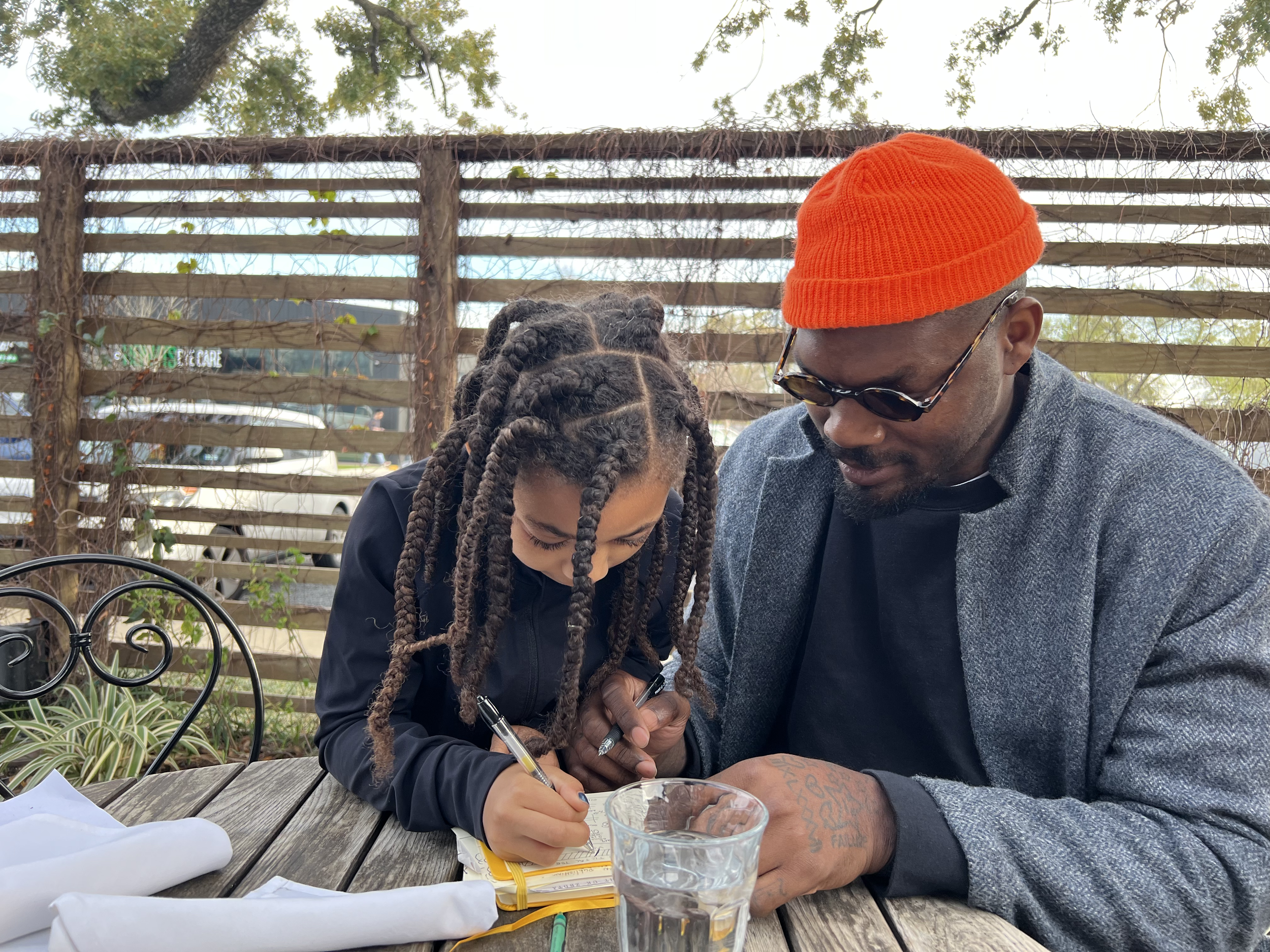
Photo c/o The Bennett Family
We moved from arts, sales, and music to sports and the outdoors, which would both play a huge role in Martellus Bennett’s life, both as a young man and as an adult and dad later. “What role did athletics play in your youth? And how about the outdoors?”
“Oh yeah, sports, for me, I was from Texas where it goes football, oil, and then God, you know what I'm saying?” Marty replied. “So I played and I was the number one basketball, number one football player in Texas my senior year. I was like the number one recruit in the country as well. AndI grew up going fishing. Fished a lot, a whole lot of fishing.”
“I spent a lot of time in the woods. I spent most of my time under a tree. Still to this day I try to sit under a tree at least every few days just because I just like being outside. I always tell people I learned more from staring at a tree than I've ever learned from staring at a man.”
“So I just feel like this, as I get older, I just realize how small we are,” Bennett went on. “I think nature always puts things into perspective. Also, who's more creative than mother nature, right? So for me, I feel like mother nature is the ultimate creator. And then I always tell people there's nothing that a human actually can offer the planet besides art. I mean, everything we do is a form of taking something from mother nature to make something. Everything. Coffee, oil – we can't do anything for it; nature does everything for us. So it's like, the least we could do is water the trees.”
“But yeah, so athletics, we played sports all the time, we was outdoors all the time. We hiked, we ran, we played football, we played basketball. We played tennis. Sports of any kind. My punishment as a kid was I couldn't go outside. I could watch TV. I could play video games. I just couldn't go out the door!”
“What role does the outdoors play for you these days in your life, especially as a parent?” I asked next.
“Oh, I mean, it's the same. I mean, I think not just as a parent, but as a human. With my daughter, it's just about walking in nature. My family takes walks in nature. We climb trees together, just playing in nature. I think that leaves more room for the imagination. Because a stick can become a sword. It could be a bat. It could be a pedal for a boat. So it's just the pure imagination that goes into the interaction with nature versus a toy or a slide or something, and it tells you its form and function. But if you just find a log, then you stand on it, maybe you've got an alligator.”
“So, just activating the imagination is much easier to do in nature, in my eyes,” Marty said. “So we spend a lot of time outdoors, we just play. We play outside. Not anything necessarily in particular, but we just go outside to play. Like: ‘Hey, let's go outside and play.’ It could be to kick the soccer ball. It could just be to do cartwheels in the grass. It could just be to walk and talk and read. Try to get outside and read outside. I'm a sucker for really movie-type things like picnics, but they got to have the blanket, and the big basket, and everything. So I kind of like it all to be really nice, but tasteful, but it looks cool and stylish. So I like doing picnics and stuff like that, but they got to be cool.”
“Other than that, I ride my bike too. I ride my bike probably three to four times a week. You know what I'm saying? Just riding through nature, I ride on trails.”
That seemed to be the perfect time to pivot to discussion of the bike Marty Bennett recently helped design along with Benjamin Ward, the BMX global product manager with GT Bicycles. So I asked him about the bike, which is branded with Marty’s Super CakeBoy artwork, Super CakeBoy being his latest creation via his Imagination Agency production house.
“So, you've helped develop and design this bike; how did that come about, and where's that project going?”
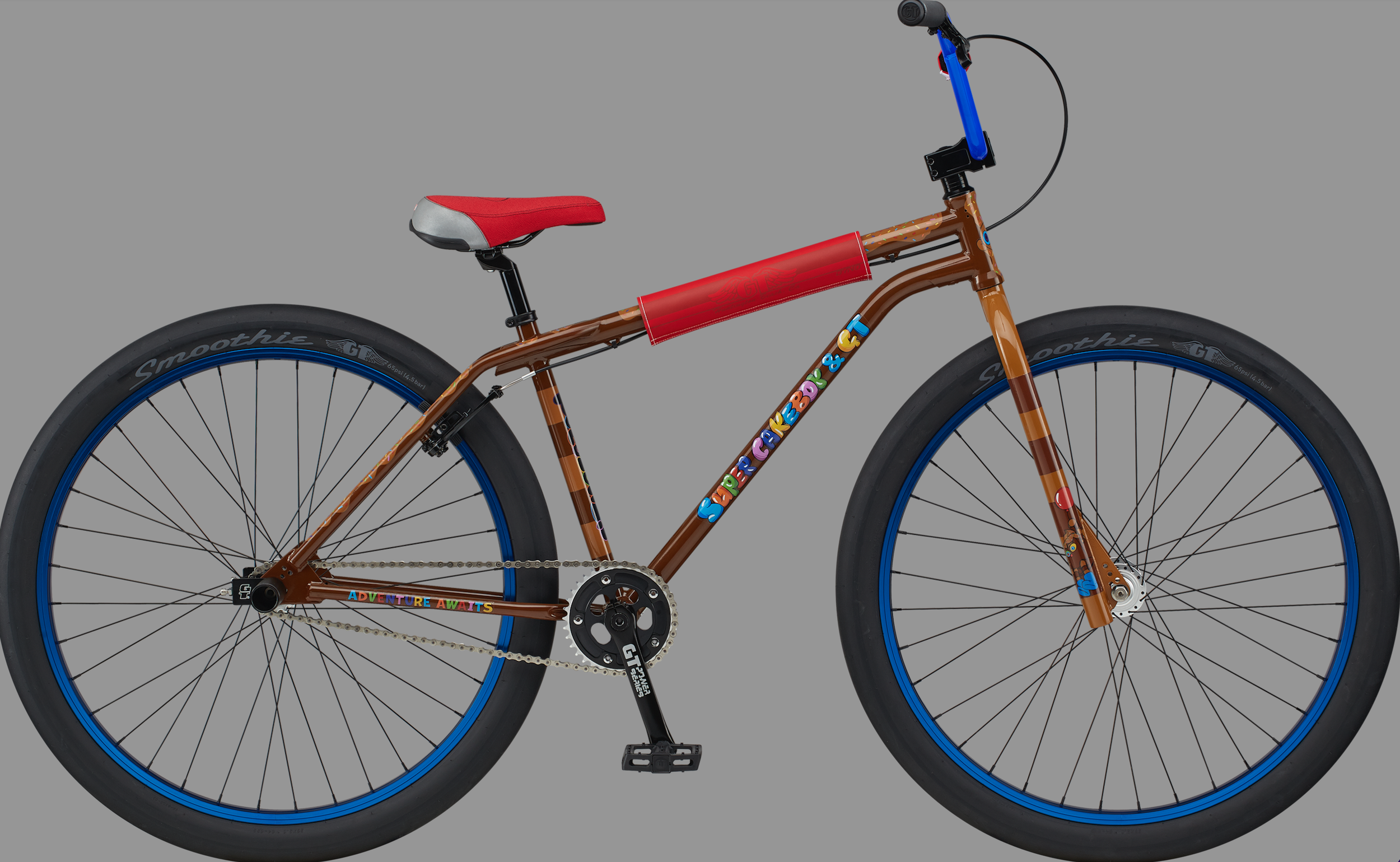

photos c/o Martellus Bennett



photos c/o GT Bicycles
“Well, it was just a refresher. It was just a shared interest. I met Ben [Ward], and Ben came by my studio. I was in LA at that time. He came by the Imagination Agency and I had a bike. I had a couple bikes there, and we just started talking. And I was like: ‘Man, I want to make a bike.’ And then I just started drawing bikes right there. ‘It needs to be like this. Can we do this? Can we do that?’”
“And he's like: ‘Man, we're going to do this.’ This was in 2020, maybe? I think. So this was a long time. It took a lot of work to get it to where it is and everybody worked through COVID. It was really cool. It was a very cool process. And they kind of let me do a lot. I don't know if I'm an easy collaborator. I feel like I'm easy to collaborate with, but I have a vision and if I'm collaborating, I want my vision to come through the collaboration. And sometimes the collaboration is about learning – like on a bike, there's a lot of s**t I just don't know about bikes. You know what I'm saying? I don't know what I can or can't do!”
“So there would be some stuff where they're like: ‘Oh, you can't do that because you can't do that on bikes.’ So it was like: ‘Oh, okay, scratch that off. Can I do this?’ So it's learning how art assets are done on bikes and how the bike has to be built. Those things – there's a lot of stuff that I don't know that I've got to learn. And so if I make the next bike, they could be even faster and cooler.”
“Anyway, Marty went on. “Back then I was working on a series – I showed Ben – a graphic novel series called ‘Cake Boy.’ And I was like, yo, because I thought it would always be cool; when I was a kid I used to ride BMXs and Mongoose. I used to ride a Mongoose all the time. Even then, I was always like: ‘Man, I want my own bike.’ So I painted the bikes. Then I started painting more and I got paid. I turned it into a business at one point where I would paint bikes in the neighborhood.”
“So, it is actually kind of cool. Because I painted my bike too because I used to sell ice cream. So I used to put the ice cream on the back of my bike, to roll it around the neighborhood. And I had dry ice. My dad worked at Dreyer's and I discovered dry ice through Bill Nye the Science Guy. So I just started traveling with ice cream through the neighborhood. I used to undercut the ice cream truck. And I used to ride my bike, but I had to paint my bike so it had some flare. And it's kind of cool, because now I've got a Cake Boy bike, which is the sweetest bike you could ever have. This is kind of like the bike I had as a child as well, which I made look like it was ice cream so that people would know I was the ice cream man.”
“So it came full circle,” I said.”
“Yeah. Now that I think about it, I haven't really thought about this story, but now that I'm telling it, I'm like: ‘Yo, this is crazy!’"
“Moving back to writing” I next said, “when did it become clear to you that writing was more than just a hobby and was going to potentially be a big part of your career?”
“So, I think I never really knew about writing in that style, as a career. I think storytelling – I always knew that was what I was good at, telling stories. I knew that from a young age, I knew I could tell stories. I think writing, when I first was in the NFL, I used to write for the Dallas morning news. I used to blog for the Dallas morning news. It was just some wild, goofy, young 21-year-old, not tamed mind type stuff I used to write for Dallas morning news.”
“And then after that, I started writing music. And then I was in a band and I started traveling, writing all the music for the band that we were in. Then I decided to write this children's book. I wrote this children's book called the ‘Wannabes.’ Which I still have. I never released it. I might release it at some point. But I wrote this book called ‘Wannabes.’
“I was up one night and my wife – she was my girlfriend at the time – and I was sitting on the couch. I remember because I wrote it in one night. I was like: ‘Man, I have this idea for a book, a children's book.’ Because I think we had a conversation about the Berenstain Bears. And I was like: ‘Man, I'm going to write something better than the Berenstain Bears.’ And I remember just sitting up all night, just a stream of consciousness.”
“And then she woke up in the morning at 8:00 AM. I was still writing and I was like: ‘I'm almost done.’ And the book, I had edited it twice and everything. So I wrote this book, but I never put the book out, at that time. Then when I got to New York, when I ended up in New York, I made my first animated piece. And that's when I was like: ‘Yo, this is really cool.’ It was the retelling of another story that happened. So, this guy fell from a stadium and I caught him before he hit the ground. He fell from the bleachers and then I caught him before he fell. It was at the time before cell phones. All these people saw it, but there was no pictures or anything of it. But there was a lot of witnesses, you know what I'm saying? So it was like this kind of legendary thing.”
“And we ended up retelling the story and animating it. And that was like: ‘Oh man, I could do animation, too.’ So then we go to Chicago. We get pregnant – I'm telling you the whole story – this is how I got there. So we go to Chicago and then we get pregnant and – well, my wife gets pregnant, I wasn't pregnant – but we have our first child. When you have your first kid, you start being like: ‘Oh, s**t. I'm going to get all these books, like the books I used to read and the books I loved. I'm going to read her this. They're going to have this!’ You just start trying to build this library for your kid, right?”
“And everybody dreams. I guess everybody would probably want to have a beautiful library for their children at some point. Or at least the idea of it. But so you get these books when you have a child. You start reading these books to your kid. But first thing you thought with your children, at least one of the first thoughts, I was like: ‘Dang, I wonder what she's going to do in life? Dang, what is this human? What is she? Who is she? I don't really know this little motherfu**er, and I love her. It's my first time meeting her." You don't even know anything. She could be the antichrist. You know what I'm saying? But it's your anti-Christ, you know what I'm saying?
“So, it's the first time I ever experienced love at first sight. I don't even know, you just instantly love it. It's just one of the most beautiful things ever. And I do believe that you can have love at first sight because I experienced love at first sight with my child.”
“But so you start reading all these children's books to them. And then you start wondering and you start thinking about what they want to grow up. And I start thinking about what I want to be when I grow up. And I never once as a kid said that I want to be an NFL player. Like,, first I wanted to be an astronaut.
“Anyway, so my daughter's born, we start reading all these children's books. Then I start realizing like: ‘Yo, none of these books actually look like her.’ Then you start looking for characters of color. You be like: ‘Ah, man, dang, not even one just looks like her, or acts like her, or thinks like her, or plays like her."
“So then I'm like: ‘Well, s**t, I should write the book. I should write books. I always wanted to write a book. That's something I always wanted to do." So then I wrote my first children's book, “Hey, A.J.!” And as I wrote that book, then I ended up going through the process of printing and publishing it myself, and all that good stuff.”
He has not looked back since, being a thoroughly forward-looking kind of man. Today, Martellus Bennett is involved in writing that goes well beyond his kids’ books alone – he has penned myriad newspaper op-eds and public letters on behalf of players protesting various NFL policies. He wrote, directed, and lent his voice to the animated short film “Zoovie.”
And of course he has spent much of his time over the last eight years devoted to his daughter – come what career twists and turns lie ahead for Marty, that piece of him is not going to change.
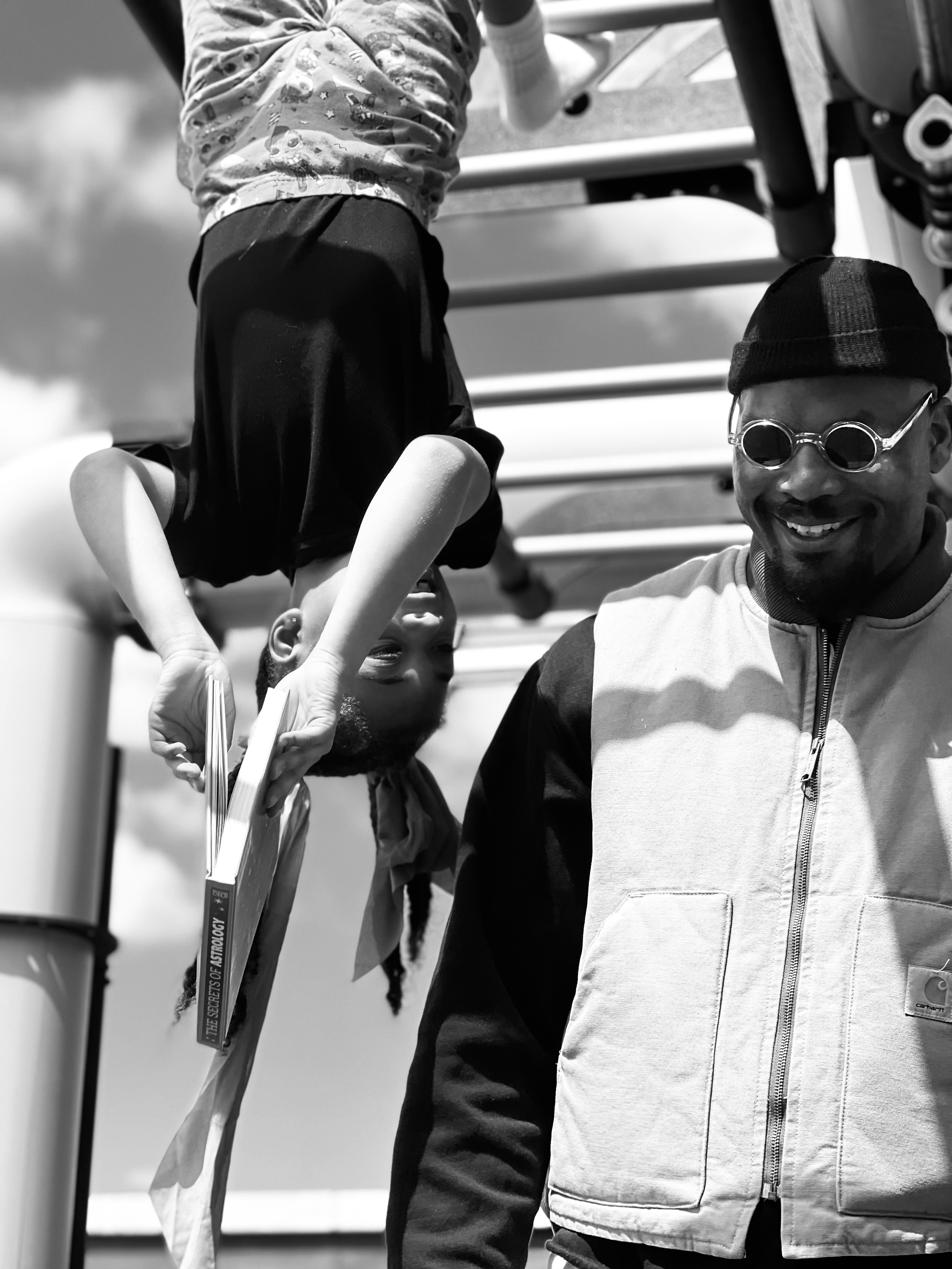
Photos c/o The Bennett Family
